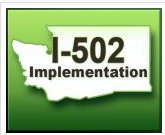January 17 From Dale Gieringer
It’s the view of Cal NORML’s board that California would be better served by waiting two more years to propose a stronger and more progressive measure. Currently four different legalization initiatives have been submitted to the state. My personal preference is for Ed Rosenthal’s initiative which provides for true comprehensive reform. While each initiative has its strengths and weaknesses, the fact that so many ideas are out there argues strongly that more time is needed to develop a workable proposal. We should wait to see how CO and WA work out before proposing a legalization system here.
The DPA initiative has very serious weaknesses that could set back substantive reform. it would do nothing to decrease MJ arrests or imprisonment because it leaves ALL current felony MJ penalties in place; patients would still face felony charges for 7 plants or transporting more than an ounce; kids could still be arrested for felony intent for ANY amount of marijuana; possession of more than 1/8 of an ounce of concentrated cannabis (read edibles) would still be prosecutable as a felony.
The initiative also creates the new crime of “consumption in a public place,” making it an infraction for patients to medicate even with edibles or vaporizers in most outdoors locations.
The initiative does nothing to regulate medical marijuana, the most pressing reform issue currently in California; instead, it would establish an unworkable, two-track regime in California where medical MJ dispensaries would remain unregulated and untaxed, while adult use would be regulated and taxed at 25%.
This two-track regime would be economically untenable, since most heavy users would remain medical to avoid the tax. The likely response by the legislature would be to try to end medical MJ collectives altogether and force everyone to be adult use, as we have seen in WA. The initiative does nothing to advance the rights of seriously ill patients or assure them legal access to marijuana; instead, it unequivocally reaffirms in un-repealable language the right of local governments to ban MJ facilities. Unfortunately, there is no language in the DPA initiative to protect existing dispensaries that have paid their taxes and abided by all state and local regulations.
By unfortunately failing to address these crucial issues, the DPA initiative could set back reform efforts in CA. We have been trying to get the legislature to de-felonize minor MJ crimes and advance patients’ rights for years without success; the only opportunity to do so is via an initiative. California is unlikely to have a second chance at legalizing. Better to do it right with a strong initiative in 2016, than to preclude important reforms by rushing forth prematurely with a weak and hastily-conceived effort in 2014.
For all of these reasons, the Cal NORML board has voted NOT to endorse the DPA initiative in 2014, but to work together towards a comprehensive, better conceived initiative in 2016, in the light of more experience from CO and WA.
Retro message from O’S: The flawed Drug Policy Alliance initiative should come as no surprise. The billionaire-backed group routinely takes over, weakens, and then takes credit for grass roots reform efforts. Nadelzimm weakened Prop 215 by adding ballot arguments that transformed it from a bar to arrest and prosecution to an affirmative defense in court. Most recently, in the state of Washington, DPA introduced a gratuitous “per se definition of DUI” into the marijuana legalization initiative. Weakening the movement is their specialty.




